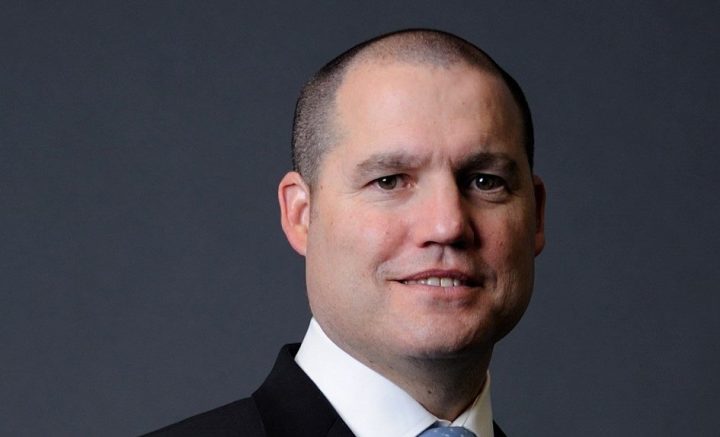SPONSORED CONTENT
The end is near … again. Now what?

We’re at that stage in the market cycle when we regularly see some or other Punxsutawney Phil appear on financial TV, or in the blogosphere, to throw shade at the stock market and predict the end of the bull market. Except that we’ve been at this stage for the last five years already.
Investors can safely afford to ignore these calls, and not just because most of them are wrong. (A few will prove prescient, or lucky, but nobody knows which ones.) More to the point, though, if you are following a sensible strategy, it just should not matter to you what the market does next.
The pundit’s bug bear is that equities – especially US equities – have been heading mainly north since the 2008 Global Finance Crises. Nobody expected that. The system teetered so close to the edge, it should have dissuaded risk-taking for at least a generation. But it didn’t, which is one reason it’s been labelled the most hated bull-market in history: no one saw it coming. And for those who’ve been in cash since 2008, there’s never been a good time to get back in.
And many reasons to stay out, or convince others to get out: high valuations; the Fed will hike rates more aggressively; inflation’s back; Treasury bills have hit 3%; Trump is starting a trade war; Trump is starting a real war; oil is coming down; oil is going up; the Chinese economy is growing too slowly; the American economy is growing too fast; Buffett’s not buying; quantitative easing is ending; quantitative easing is reversing; dollar weakness is hurting, and so is dollar strength; yield spreads are too narrow; beware this reporting season (or the next one); too few, no, wait, too many jobs are being created; bubbles are everywhere; there’s too much debt; there’s too little lending; there’s too much buy-and-hold; there’s too much speculation.
Of course, few would argue that these financial times are out of joint – the cheap money policy in the
US has distorted asset prices for some years. We are now in a phase where the Federal Reserve in the US is hurrying that chapter to a close while the economic going is good, even if it displeases the president.
It’s true that markets fall over every few years, and we appear overdue. The experts don’t want to ignore any signals that will with hindsight seem obvious flags of a major correction. That is their job.
The bigger question is why they feel compelled to broadcast their concerns to the world, like some public service announcement. And why the media indulge them, fully aware that these calls are more often wrong than right.
The answer, in short, is that these ‘experts’ are usually talking their book, and it captures our attention. There is always a newsletter crowd “connecting the dots”, sharing their “outside-the-box” “thoughts from the front line”, hoping we’ll subscribe to their doomsday-prepping research. Or it is fund managers promoting active management, or finance professors touting their academic research, or market pundits building their profile.
There’s a big reputational gain to be had for being right, and almost no cost to being wrong. It’s a pay-off profile that encourages bold predictions and bolder headlines.
These experts would not share their insights so freely if they had real economic value, or if they faced consequences for being wrong. We should treat them accordingly, as food for thought, but not as a call to action.
For all that, the month of October does tend to unnerve investors. Perhaps it has to do with the gloom that descends ahead of the US winter, but since 1950 this has been the most volatile month for the S&P500. And it’s been host to the most famous of market crashes, Black Tuesday (1929), Black Friday (1987) and a big part of the Global Financial Crises (2008).
So if you are going to paint it black, then October is definitely the month to do it. And there is much to be nervous about right now. The local market has been getting it from all sides: a home-spun recession, a slew of negative earnings surprises, bearish sentiment towards emerging markets in general, and, more recently, weakness in sympathy with the US market sell-off.
The FTSE JSE All Share Index is 15% off its peak (posted as recently as 28 August), but as it is still within the 50,000 to 55,000 band it traded for most of the past four years, the media reaction has been quite muted. The real outcry will start once we dip markedly below that.
Further afield, worries are about climbing US interest rates and bond yields and a tightening US labour market (stoking inflation fears). And although corporate earnings are strong, there is a fear these may have peaked in the current cycle.
While the US economy is pumping, global growth appears to be decelerating. The IMF has reduced its global growth forecast by 0.2 percentage points for both 2018 and 2019, to 3.7 per cent in both years. Other indicators suggest that they are still too optimistic.
Then there are concerns about the state of the Chinese economy, extravagant public spending plans in Italy (raising the spectre of the Greek debt default we saw a few years back), and the prospect of a no-deal Brexit.
Markets are also reporting the first casualties in the US war against trade, with Caterpillar, amongst others, claiming that tariff pressures are squeezing its profits and adding to global inflation.
What should investors do, faced with this ‘wall of worry’? The urge will be to move your money out of harm’s way by reducing your exposure to the share market. But realistically, these developments are already reflected in market prices, so you would be speculating on momentum and more bad news, which may, or may not, come through. Or you are simply expecting other investors to panic, and you want to get ahead of the stampede for the exit. But there have been many cries of ‘wolf’ over the past five years, and none of them have stuck yet.
However, even if the market does fall over in a big way, it should not matter to you financially (even if it’s going to hurt emotionally). That’s because as a short-term investor you should carry little market risk (exposure to the share market) and, as a long-term investor, you have time on your side to ride out whatever happens over the next 12 or 24 months.
In other words, what really matters is how you factor market volatility in to your investment strategy. Rather than speculate on next year’s return, the focus should be on your asset mix.
More specifically, your level of market risk should be commensurate with your time horizon. For a short-term horizon, you would carry little market risk, knowing that near-term market volatility can take a big chunk out of your savings. The focus must be on preserving what you have.
But as a long-term investor you can afford to take on much more market risk, because the share market has historically delivered the best return over the long term. The focus is on growing your wealth, not on what’s going to happen over the next 12-24 months.
A life stage portfolio will automatically adjust your market risk to your investment time horizon. Look for the most effective and cheapest way to own your portfolio. Index funds are typically much cheaper than actively-managed funds while delivering equivalent, or even superior, returns.
Diversify extensively and re-balance regularly. In this way, you take some profit on that part of the portfolio that has performed well in recent times, re-investing the proceeds in the parts that now offer better value. This will improve your long-term return further. Again, your life stage portfolio manager takes care of this for you.
Commit to this simple strategy and you can then safely ignore the financial commotion and what industry ‘experts’ have to say on what the market will do next, because as far as you are concerned, it just won’t matter.
The things that do matter include: how much you save, how long you save for, and keeping fees low.
Use the 10X Investments retirement calculator, which allows you to adjust the inputs you can control, to find the right formula to achieve your retirement goal. DM

















 Become an Insider
Become an Insider